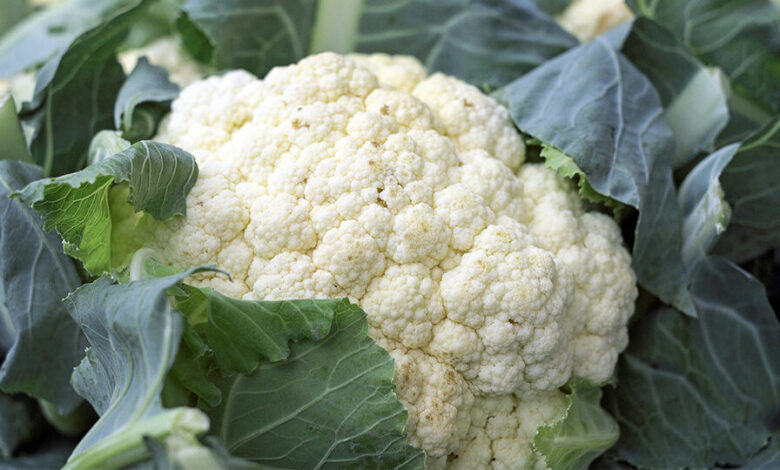Cauliflower: Health Benefits And Side Effects

The History Of Cauliflower
Previously, cabbage was called Syrian, since it is believed that it was first bred in Syria, from where it was brought to Cyprus. She came to Russia in the time of Catherine II. Cauliflower dishes were considered delicacies and were available only to nobles.
Cauliflower belongs to the cruciferous vegetables along with broccoli, white cabbage and Brussels sprouts. A large body of research points to cruciferous vegetables as a source of natural antioxidants due to their high content of vitamins, carotenoids, fibre, soluble sugars, minerals, and phenolic compounds.
The Composition And Calorie Content Of Cauliflower
| Calories per 100 g | 25 kcal |
| Squirrels | 2 g |
| Fats | 0.1 g |
| Carbohydrates | 5.3 g |
| Cellulose | 2.5 g |
| Vitamin C | 46.4 mg (77% DV) |
| Vitamin K | 0.016 mg (20% DV) |
Health Benefits Of Cauliflower
Cauliflower contains a large number of substances that have anti-inflammatory, anti-carcinogenic properties, protects against diseases of the cardiovascular system, improves brain function, and even prevents weight gain.
The content of these substances is indicated only for 100 g of the product. Due to its low calorie content, you can allow more cauliflower to be eaten in a variety of meals.
Cancer Protection
A large amount of evidence suggests a direct relationship between food intake and cancer risk. In studies, cruciferous vegetables have shown anti-carcinogenic properties to reduce the risk of breast, colon, liver, lung, and stomach cancers. That is why this type of vegetable is considered to be the most effective cancer-preventing product.
Among other things, cauliflower contains substances that block the growth of tumour cells in the early stages of development. Studies have shown the ability of cruciferous vegetables to inhibit the development of artificially induced cancer. At the same time, these natural products played the role of antimutagens that prevented further reproduction of tumour cells.
The anticarcinogenic properties of this type of vegetable are provided by special chemical compounds – glucosinolates containing sulphur. It is these substances that give cruciferous vegetables – cabbage, cauliflower and Brussels sprouts a special flavour when they are cooked. These beneficial compounds are converted into biologically active components during digestion, which prevent the growth of cancer cells.
Source of Beneficial Vitamins And Minerals
In addition to vitamin C, cauliflower is a rich source of vitamin K, which strengthens bones and prevents osteoporosis. Vitamin K also takes part in blood clotting processes and enriches the body with calcium. Monotonous food similar to the standard American food (fast food, etc.) contributes to the development of vitamin K deficiency.
The Side Effects Of Cauliflower
Digestive disorders, including gas formation
Some people experience digestive problems when eating cruciferous vegetables, including cabbage, cauliflower, and raw broccoli. The cause of indigestion is the content of carbohydrates in these vegetables, which are not completely broken down in the digestive tract, in combination with a large amount of fibre and sulphur. Cooking these vegetables (boiling, stewing, frying) solves this problem.
May exacerbate symptoms in people with kidney stones or gout
Cruciferous vegetables contain compounds called purines. Purines can be converted in the body to uric acid and deposited as salts. If you have a history of kidney stones or gout, check with your doctor before consuming large amounts of cauliflower. However, if you eat this product in small quantities, you can avoid any risks.
The Use Of Cauliflower In Medicine
Cauliflower is high in antioxidants, anti-inflammatory compounds, and vitamins that may have anti-carcinogenic, anti-inflammatory effects, and reduce the risk of cardiovascular disease. Due to the fibre content, cauliflower can be used to improve digestion.




